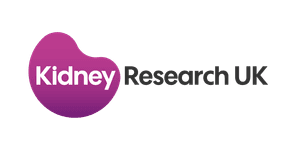Dialysis treatment restricts people’s time, freedom and what they can eat and drink. It takes a heavy toll on their mental health. It can make them feel unwell or exhausted. And it impacts the people around them: relationships, family and friends.
We visited patients and staff at the Cambridge Dialysis Centre to understand how dialysis impacts their lives. This video showcases just a small number of patients lived experiences, showing what life is really like living on dialysis.
When your kidneys work properly, they filter and remove waste products and excess fluid from the blood. When your kidneys fail, it can be life-threatening, and you need treatments such as dialysis or a transplant to stay alive.
Dialysis is a way of replacing some of the functions of your kidney, if your kidneys have failed, by using a machine to filter and clean your blood. There are two types of dialysis treatment: haemodialysis and peritoneal dialysis. Both forms of dialysis are not cures for kidney failure. A total of 30,000 adults and children are currently on dialysis, with kidney failure rising, the number of people in need of dialysis treatment could rise to as much as 143,000 by 2033.
Some dialysis patients undergo on average four-hour sessions three times a week in hospital, it is time consuming, restrictive and associated with other significant health risks. As part of our transforming treatments priority, we are collaborating, investing in and supporting research that will find ways to make dialysis more tolerable, reduce the risks and empower patients who rely on dialysis to survive. Our research has changed the future for so many kidney patients, but more needs to be done. We are determined to accelerate improvements.
In the UK, 20 people develop kidney failure every day and need dialysis or a transplant to stay alive.
It’s not a disease that affects a small number of people. There are estimated to be 7.2 million people in the UK currently living with chronic kidney disease. Kidney disease has become a public health emergency in the UK and is costing the UK economy £7 billion a year, costs which could rise to £13.9 billion in just ten years.
We are determined to transform treatments for people living with kidney disease.
- We want transplants to last longer. Patients don’t need the worry of wondering if or when theirs will fail. They should be for life.
- We want to reduce the burden of treatment and improve patients’ quality of life. Treatments are incredibly disruptive and can make people feel very unwell. But this can be improved through research into better medical solutions.
- We want everyone to have equal access to treatments and care. 32% of people on the waiting list for a kidney transplant are from minority ethnic backgrounds. This isn’t good enough.
To find out more about how we are transforming dialysis through research visit www.kidneyresearchuk.org/transform-treatments
With thanks to Cambridge University Hospitals NHS Foundation Trust.
As the leading kidney research charity in the UK, nothing is going to stop us in our urgent mission to end kidney disease. We’re here to be heard, to make a difference, to change the future. This is a disease that ruins and destroys lives. It must be stopped.
Over the past 60 years, our research has made an impact. But kidney failure is rising, as are the factors contributing to it, such as diabetes and obesity.
Today, we are more essential than ever.
There are estimated to be 7.2 million people in the UK currently living with chronic kidney disease, treatments can be gruelling and currently there is no cure. Only research will end this and nobody can do it but us, by offering kidney patients and their families hope for the future. We’re taking it on. But we can’t do it without you.
Our vision is the day when everyone lives free from kidney disease.
Our purpose:
- Prevent kidney disease by finding ways to see it coming and stop it happening.
- Protect people from reaching kidney failure by learning how to spot disease early, halting disease progression, and repairing kidney damage.
- Treat: Transform treatments by making dialysis more tolerable and making transplants last longer until better alternatives are available.

We align with the following UN Sustainable Development Goals: